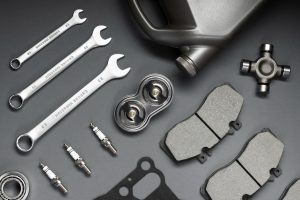The clutch is a vital component of a vehicle’s manual transmission system, responsible for engaging and disengaging the engine from the wheels to facilitate smooth gear changes. This engagement and disengagement enable the driver to change gears smoothly and come to a stop while the engine runs. Over time, clutches can wear out and eventually fail, leading to a range of issues that can affect vehicle performance and safety. Recognising the signs of clutch failure early can prevent further damage and costly repairs. This guide will explore the common symptoms of clutch failure and what to do if you encounter them.
Understanding the Clutch System
Before diving into the signs of clutch failure, it’s essential to understand the basic components of a clutch system. The clutch consists of three main parts:
- Clutch Plate: This component transfers engine power to the transmission.
- Pressure Plate: It applies pressure to the clutch plate to engage the engine.
- Flywheel: This part connects to the engine and provides a smooth surface for the clutch plate to engage.
When you press the clutch pedal, the pressure plate moves away from the clutch plate, allowing you to change gears. When you release the pedal, the pressure plate re-engages the clutch plate with the flywheel, transferring power to the wheels.
Timely clutch replacement is crucial to maintain the efficiency of the clutch system.
Common Signs of Clutch Failure
Recognising the signs of a failing clutch can help you address issues before they lead to more significant problems. Here are some of the most common symptoms:
- Difficulty changing gears
- A ‘slipping’ clutch
- Poor acceleration: If you notice that your vehicle has poor acceleration, it could be a sign of clutch issues. This symptom, along with others like difficulty changing gears or a ‘slipping’ clutch, can indicate underlying mechanical problems that require professional attention.
1. Spongy or Sticky Clutch Pedal
A clutch pedal that feels spongy or sticky when pressed, often referred to as a clutch pedal sticking, is a common sign of clutch problems. This issue can indicate air in the hydraulic line or a problem with the clutch master or slave cylinder. A spongy pedal may also suggest that the clutch fluid is low or contaminated.
2. Difficulty Shifting Gears
If you experience difficulty shifting gears, especially into first or reverse, it could be a sign of clutch failure. This problem often occurs when the clutch does not fully disengage, making it hard to shift smoothly. A worn-out clutch plate or issues with the hydraulic system can cause this symptom.
3. Slipping Clutch
A slipping clutch occurs when the clutch plate fails to engage fully with the flywheel, causing a loss of power transmission. This issue is often noticeable when the engine revs increase without a corresponding increase in vehicle speed. A slipping clutch can result from a worn clutch plate, weak pressure plate springs, or oil contamination on the clutch surfaces. Addressing clutch slipping promptly is crucial to avoid more significant repair costs, such as damage to the flywheel.
4. Unusual Noises
Unusual noises such as squeaking, grumbling, or grinding noises when pressing the clutch pedal can indicate clutch problems. These sounds may result from a worn release bearing, damaged pressure plate, or issues with the clutch linkage. It’s crucial to address these noises promptly to prevent further damage.
5. Burning Smell
A burning smell coming from the vehicle can be a sign of clutch failure. This odour often results from excessive friction caused by a slipping clutch, leading to overheating of the clutch components. If you notice a burning smell, it’s essential to have your clutch inspected as soon as possible.
6. Sticking or Stuck Clutch Pedal
A clutch pedal sticking or remaining stuck to the floor can render your vehicle undriveable. This issue can be caused by a faulty clutch cable, hydraulic system problems, or a worn-out clutch release bearing. If your clutch pedal sticks, it’s crucial to stop driving and seek professional assistance.
7. Fluid Leaks
Leaking clutch fluid is a clear indication of a problem within the hydraulic system. Low fluid levels can lead to clutch engagement issues and should be addressed immediately. Inspect for leaks around the master cylinder, slave cylinder, and hydraulic lines.
Causes of Clutch Failure
Understanding the causes of clutch failure can help prevent future issues. Some common causes include:
- Wear and Tear: Over time, the friction material on the clutch plate wears down, reducing its effectiveness.
- Hydraulic System Issues: Problems with the clutch master or slave cylinder can lead to engagement issues.
- Contamination: Oil or other contaminants on the clutch surfaces can cause slipping and reduced performance.
- Improper Driving Habits: Riding the clutch or aggressive driving can accelerate wear and tear on the clutch components.
What to Do If You Suspect Clutch Failure
If you notice any signs of clutch failure, it’s crucial to take action promptly to avoid further damage. Here are some steps to consider:
- Consult a Professional: Seek the advice of a qualified mechanic to diagnose and address the issue. They can provide a comprehensive inspection and recommend necessary repairs or replacements.
- Avoid Driving: If your clutch is severely compromised, avoid driving the vehicle to prevent further damage or a potential breakdown.
- Clutch Replacement: If the clutch is beyond repair, consider a clutch replacement to restore your vehicle’s functionality. This process involves identifying the need for replacement, understanding the costs, and knowing the time required for the replacement.
- Regular Maintenance: Schedule regular maintenance checks to ensure your clutch system is in good condition and address any minor issues before they escalate.
Conclusion
Clutch failure can significantly impact your vehicle’s performance and safety. By being aware of the common signs and causes of clutch issues, you can take proactive steps to address problems early and maintain your vehicle’s reliability. Regular maintenance and mindful driving habits can also extend the life of your clutch system, ensuring smooth and efficient operation for years to come.



